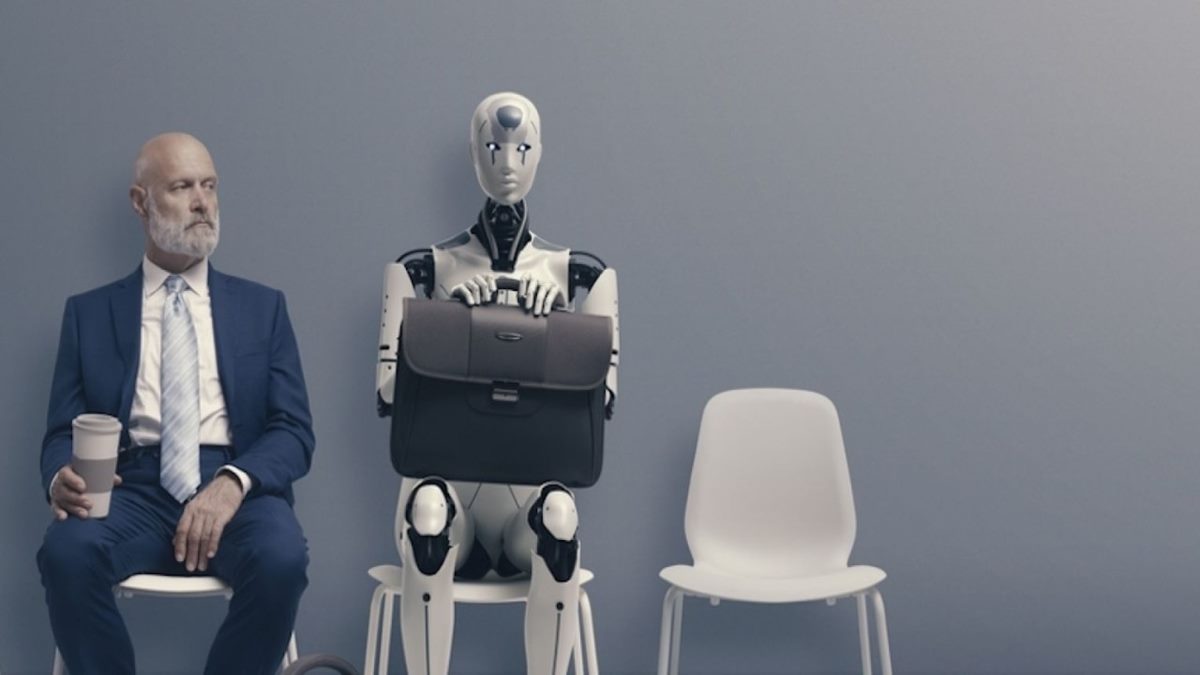For decades, older generations have held onto persistent myths about their younger colleagues, often viewing them as less committed, less ethical, and less effective at work. These stereotypes, while sometimes rooted in understandable generational differences, have become increasingly outdated and inaccurate. Recent research and evolving workplace trends are revealing a different picture: one of younger generations, particularly Millennials and Gen Z, who are not only adapting to the modern work environment but also actively reshaping it for the better.
This article will delve into some of the most common workplace myths about younger generations, examine the evidence that debunks them, and explore how these generations are redefining key aspects of the professional world, including efficiency, effectiveness, and ethics. By challenging these long-held assumptions, we can foster a more accurate and productive understanding of the contributions of younger workers and pave the way for a more inclusive and successful future of work.
The Persistence of Generational Stereotypes
It’s a common phenomenon: each generation, as it enters the workforce, faces scrutiny and skepticism from those who came before. Older generations, having established the existing workplace norms, often view younger cohorts through a lens of comparison, highlighting perceived differences in values, behaviors, and expectations. This can lead to the formation of stereotypes, which, while sometimes containing a kernel of truth, often oversimplify and distort reality.
In the case of Millennials and Gen Z, some of the most persistent stereotypes include:
- Lack of Work Ethic and Loyalty: Younger workers are often seen as “job hoppers” who prioritize personal fulfillment over long-term commitment to a single organization.
- Tech-Savvy but Anti-Social: The stereotype suggests that younger generations are so engrossed in technology that they lack essential interpersonal skills and prefer digital interactions over face-to-face communication.
- Demanding Flexibility Equals Laziness: Requests for remote work, flexible hours, and other work-life balance initiatives are sometimes perceived as entitlement or a lack of dedication.
- Ethics and Purpose are Exclusive to Older Generations: The notion that younger workers are less concerned with ethical considerations and social responsibility in their work.
These stereotypes, while prevalent, are increasingly being challenged by empirical evidence and a growing understanding of the unique circumstances and perspectives of younger generations.
Myth 1: Younger Workers Lack Work Ethic and Loyalty
One of the most enduring myths is that Millennials and Gen Z lack the work ethic and loyalty of previous generations. Older generations often point to the higher rates of job mobility among younger workers as evidence of this supposed lack of commitment. However, this interpretation overlooks the significant economic and social factors that have shaped the career trajectories of these generations.
Research from ResumeLab (2023) and other sources indicates that job mobility is often a rational response to economic instability, stagnant wages, and limited opportunities for advancement within organizations. Millennials and Gen Z entered the workforce during periods of economic recession and uncertainty, facing challenges such as rising student debt, a competitive job market, and a decline in long-term job security. In this context, changing jobs more frequently can be a strategic way to gain experience, increase earnings, and pursue career growth.
Furthermore, younger workers are not necessarily less loyal; their definition of loyalty may simply differ from that of previous generations. They are more likely to be loyal to their own career development, their values, and their well-being than to a specific employer. They seek organizations that provide opportunities for growth, meaningful work, and fair treatment. As the research suggests, these values are not unique to younger generations but rather reflect a universal desire for a positive and fulfilling work experience.
In essence, younger workers are not inherently disloyal but are adapting to a changing economic landscape and prioritizing a different kind of relationship with their employers.
Myth 2: Tech-Savvy Means Anti-Social
Another common stereotype is that younger generations, having grown up immersed in technology, are glued to their screens and lack the interpersonal skills necessary for effective workplace collaboration. This stereotype paints a picture of isolated individuals who prefer digital interactions to face-to-face communication, leading to concerns about their ability to build relationships, work in teams, and navigate complex social dynamics.
However, research from Stanford’s Roberta Katz and other experts is debunking this myth. While younger generations are undoubtedly proficient in using technology for communication and collaboration, they also recognize the importance of in-person interaction, particularly for important conversations and relationship building.
Gen Z, in particular, has been found to value face-to-face communication for conveying complex or sensitive information, resolving conflicts, and building strong connections with colleagues. Their digital skills, rather than replacing interpersonal skills, often enhance their ability to collaborate and be productive in the workplace. They are adept at using a variety of digital tools to connect with colleagues remotely, share information efficiently, and manage projects effectively.
Moreover, younger generations are often highly collaborative and team-oriented, leveraging technology to facilitate communication and coordination. They are comfortable working in diverse teams, sharing ideas, and contributing to collective goals. Their digital fluency allows them to adapt quickly to new technologies and work seamlessly across different platforms.
Myth 3: Demanding Flexibility Is Laziness
Older generations sometimes view younger workers’ requests for remote work, flexible hours, and other work-life balance initiatives as signs of entitlement or a lack of dedication. They may perceive these demands as a reluctance to put in the necessary time and effort, suggesting that younger workers are unwilling to sacrifice personal time for the sake of their careers.
However, this perspective overlooks the pragmatic reasons behind younger generations’ push for flexibility. Millennials and Gen Z have witnessed the negative consequences of burnout and overwork in previous generations and are prioritizing their mental health and well-being. They recognize that a healthy work-life balance can actually enhance productivity, creativity, and overall job satisfaction.
The Deloitte Global Gen Z & Millennial Survey (2024) and other studies confirm that the desire for flexibility is not limited to younger generations but is increasingly becoming a priority across all age groups. As technology has blurred the lines between work and personal life, employees of all ages are seeking greater control over their schedules and work environments.
The COVID-19 pandemic further accelerated this trend, demonstrating that remote work can be effective and that flexible arrangements can accommodate diverse needs and preferences. Organizations that have embraced flexibility have often reported increased employee engagement, reduced turnover, and improved business outcomes.
Younger generations, in advocating for flexibility, are not being lazy but rather pragmatic in seeking work arrangements that support their well-being and allow them to thrive both professionally and personally.
Myth 4: Only Older Generations Value Ethics and Purpose
A final myth is that younger generations are less concerned with ethical considerations and social responsibility in their work, prioritizing financial gain or personal advancement over values and purpose. This stereotype suggests that younger workers are more willing to compromise their principles for career success.
However, this view is contradicted by a growing body of evidence that demonstrates that Gen Z, in particular, is highly values-driven, often choosing employers based on their social responsibility and ethical practices. They seek organizations that align with their personal values, demonstrate a commitment to sustainability, and contribute positively to society.
This emphasis on purpose and ethics is not a new phenomenon but rather a recurring theme in generational shifts. Throughout history, younger generations have often challenged the status quo and advocated for social change, bringing fresh perspectives and a renewed focus on values to the workplace.
Younger workers are not only concerned with their own personal success but also with the impact of their work on the world around them. They are more likely to be engaged and motivated when they feel that their work has meaning and contributes to a greater good.
Redefining the Workplace: The Positive Impact of Younger Generations
Rather than being detrimental to the workplace, younger generations are actively redefining it in positive ways, challenging outdated norms and promoting more effective, efficient, and ethical practices.
- Redefining Efficiency: Younger workers are leveraging their digital fluency to streamline processes, automate tasks, and improve communication. They are adept at using technology to enhance productivity and find innovative solutions to workplace challenges.
- Redefining Effectiveness: Younger generations are emphasizing collaboration, teamwork, and a focus on outcomes rather than simply putting in long hours. They prioritize a healthy work-life balance, recognizing that well-rested and engaged employees are more effective in the long run.
- Redefining Ethics: Younger workers are holding organizations to higher ethical standards, demanding transparency, accountability, and a commitment to social responsibility. They are driving a shift towards more purpose-driven work, where employees feel connected to a larger mission and are motivated to make a positive impact.
By challenging traditional workplace norms and advocating for change, younger generations are contributing to a more dynamic, innovative, and socially responsible work environment.
How to Embrace This Generational Shift
The myths surrounding younger generations in the workplace are increasingly being debunked by research and real-world experience. Millennials and Gen Z are not less committed, less ethical, or less effective than their predecessors; they simply have different priorities, perspectives, and ways of working, shaped by the unique circumstances of their upbringing and the evolving demands of the modern world.
By listening to and learning from younger workers, organizations have the opportunity to discover new, more effective ways of working. Embracing the values, skills, and perspectives of these generations can lead to increased innovation, productivity, and employee engagement. As we move further into the 21st century, it is crucial to move beyond outdated stereotypes and recognize the vital role that younger generations play in shaping a more dynamic, inclusive, and successful future of work. The generational myths are indeed being left behind, replaced by a more nuanced and accurate understanding of the evolving workforce.




















